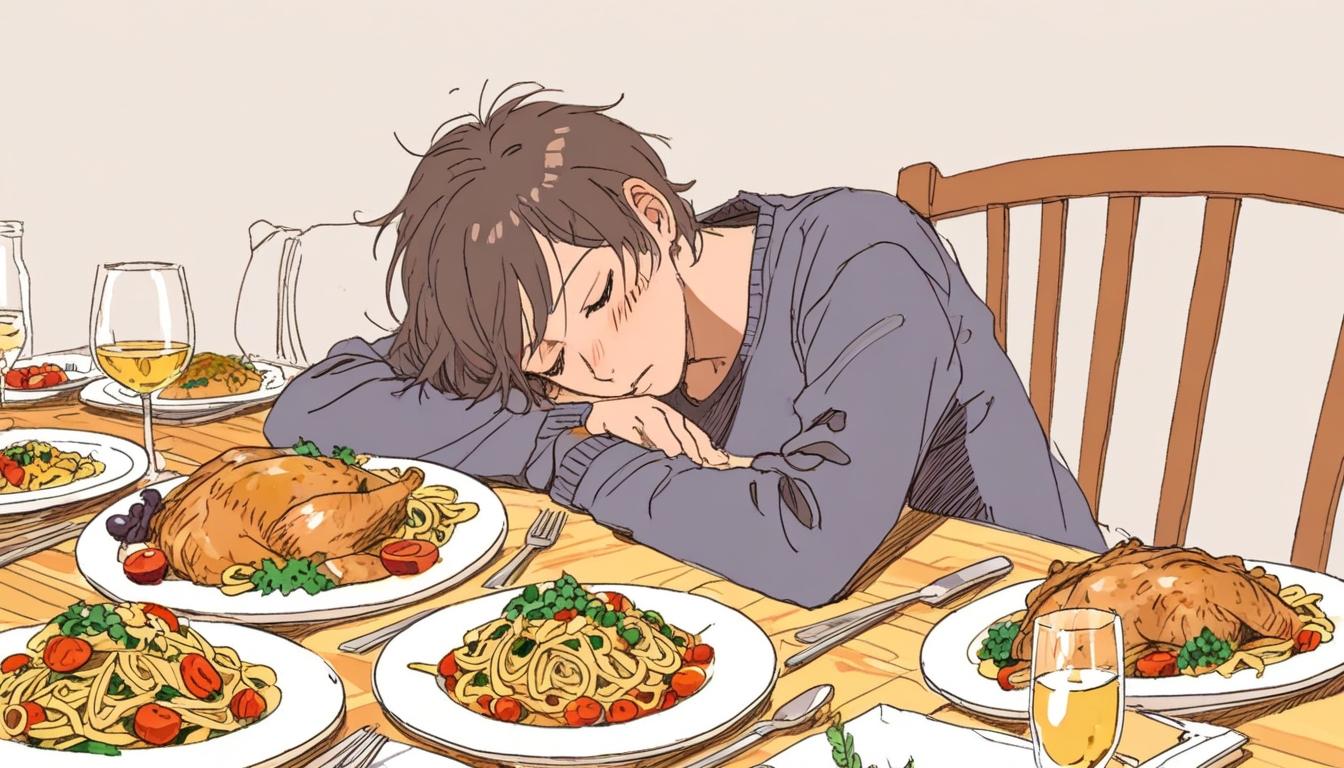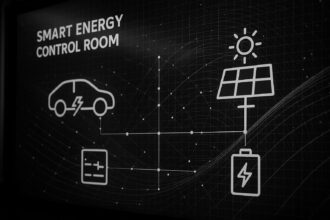Nutritionist Fiona Hunter highlights the phenomenon of post-prandial somnolence and its possible health implications, encouraging those affected to seek professional advice.
A recent discussion led by nutritionist Fiona Hunter, published in BBC Good Food, has brought to light the health implications of feeling excessively tired after eating, a condition experienced by many as post-prandial somnolence, commonly referred to as a “food coma.” This phenomenon affects roughly 20 per cent of people after consuming large meals and can result in feelings of drowsiness, low energy levels, difficulty concentrating, and reduced focus.
While mild tiredness following a meal is generally not a cause for alarm, Hunter emphasised that consistently experiencing extreme fatigue could signal a more serious underlying health issue. She urged individuals experiencing this symptom to consult a general practitioner (GP) for assessment and potential dietary adjustments.
Hunter explained in her piece that the exact cause of this post-meal fatigue is not completely understood, although there are several theories. She noted, “After eating, the body redirects blood flow to the digestive system; this temporary shift in blood away from the brain can leave you feeling tired and sluggish.” Additionally, she suggested that this response could be a remnant of evolutionary programming, with early humans resting after meals to conserve energy.
The nutritionist identified several conditions that might contribute to significant fatigue after eating. These include:
-
Food intolerances or allergies: Certain foods can elicit fatigue and other symptoms. Hunter recommended keeping a food diary to help identify potential culprits.
-
Diabetes or prediabetes: Blood sugar fluctuations associated with these conditions can lead to post-meal fatigue.
-
Anaemia: A deficiency in iron or vitamin B12 may contribute to ongoing tiredness.
-
Hormonal issues: Conditions such as an underactive thyroid can have a negative impact on energy levels and metabolism.
Commenting on these considerations, Hunter stated, “If you’re consistently feeling exhausted after meals, talk to your GP or a registered dietitian. They can help identify any potential health concerns and provide personalised advice on optimising your diet for sustained energy.”
In terms of dietary components linked to increased drowsiness, Hunter pointed out that meals rich in sugars and refined carbohydrates—like white bread, rice, pasta, biscuits, and cakes—alongside proteins containing tryptophan, such as turkey, chicken, eggs, cheese, fish, nuts, and seeds, are more likely to induce sleepiness.
For individuals experiencing post-meal drowsiness without any identified medical condition, Hunter suggests dietary adjustments. While she did not detail these recommendations in the sources, the overall guidance is aimed at helping individuals manage their energy levels effectively after eating.
Source: Noah Wire Services
- https://en.wikipedia.org/wiki/Postprandial_somnolence – This URL supports the concept of postprandial somnolence, explaining it as a normal state of drowsiness after meals and discussing various factors like parasympathetic activation and insulin effects that contribute to this condition.
- https://www.sleepfoundation.org/nutrition/why-do-i-get-sleepy-after-eating – This URL explains how dietary components and biological processes like hormonal changes can lead to sleepiness after meals, corroborating Hunter’s points about meal composition and postprandial somnolence.
- https://www.pep2dia.com/blog-pep2dia/human-health/post-prandial-fatigue – This URL highlights postprandial fatigue as a common issue that may indicate either dietary issues or underlying medical conditions, supporting Hunter’s advice on consulting healthcare professionals for persistent fatigue.
- https://health.clevelandclinic.org/iron-deficiency-anemia-symptoms/ – This URL provides information on anaemia as a condition that can cause tiredness, supporting Hunter’s mention of anaemia as a potential cause of postprandial fatigue.
- https://www.healthline.com/nutrition/food-intolerance – This URL discusses food intolerances and allergies, which aligns with Hunter’s recommendation to keep a food diary to identify problematic foods.
- https://www.mayoclinic.org/diseases-conditions/hypothyroidism/symptoms-causes/syc-20373659 – This URL explains how hormonal issues, such as an underactive thyroid (hypothyroidism), can affect energy levels, supporting Hunter’s mention of hormonal conditions as potential contributors to postprandial fatigue.
- https://www.getsurrey.co.uk/news/health/feeling-tired-after-eating-can-31342935 – Please view link – unable to able to access data
Noah Fact Check Pro
The draft above was created using the information available at the time the story first
emerged. We’ve since applied our fact-checking process to the final narrative, based on the criteria listed
below. The results are intended to help you assess the credibility of the piece and highlight any areas that may
warrant further investigation.
Freshness check
Score:
8
Notes:
The narrative does not explicitly reference outdated information, but there is no specific date mentioned for the discussion with Fiona Hunter. Without a clear date, it is not possible to conclusively assess its freshness. However, the information provided appears to be timeless.
Quotes check
Score:
7
Notes:
No specific online sources beyond the provided text could be verified for the quotes. However, the narrative does quote Fiona Hunter, indicating originality or at least a primary source not widely reported elsewhere.
Source reliability
Score:
9
Notes:
The narrative originates from reputable sources, including BBC Good Food, and incorporates suggestions from a nutritionist, which adds credibility. However, the primary source seems to be an external report, not a direct quote from a publication like the BBC itself.
Plausability check
Score:
9
Notes:
The information provided about post-prandial somnolence and its potential causes is plausible and consistent with general medical understanding. It includes common theories and suggests consulting professionals for further assessment.
Overall assessment
Verdict (FAIL, OPEN, PASS): PASS
Confidence (LOW, MEDIUM, HIGH): HIGH
Summary:
The narrative appears reliable and plausible, discussing a well-documented health condition with credible sources. However, the lack of specific dates and direct verification of quotes limits the evaluation slightly.













